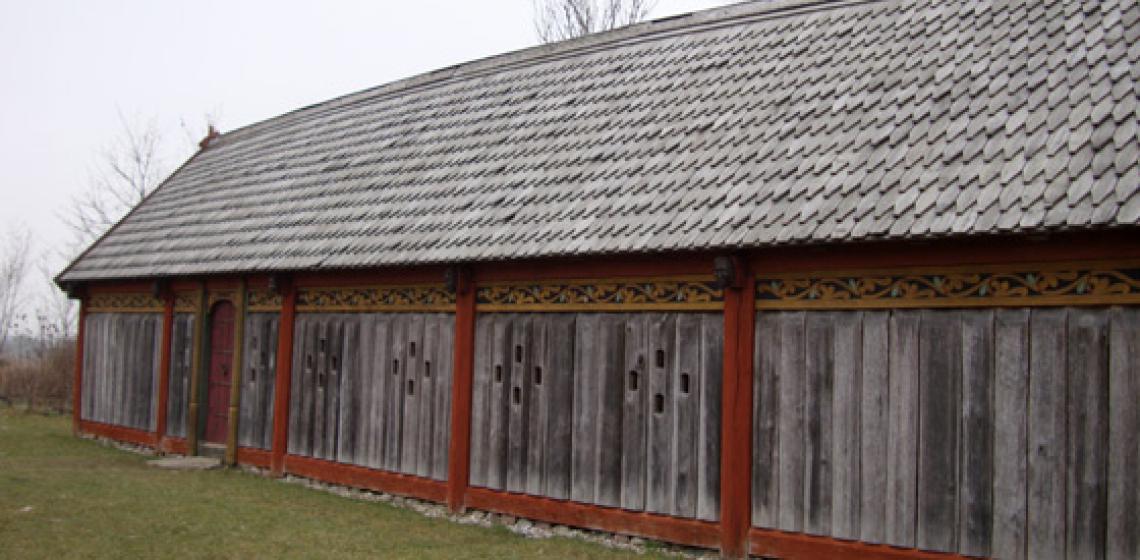Vikingelandsbyen i Albertslund (DK)

The village Albertslund is not far from Copenhagen. It is a new town, with many new traditions and ways of working and living together – the population is rich in children and nationalities. The Vikingelandsbyen is a bridge in the meeting of cultures, looking back at the travels of Vikings to all different countries.
It was obvious that this idea would take shape in our plans. Viking Age is educated and presented as part of the historic and cultural roots. Using experimental activities and continuously building forth on the latest knowledge in archaeology and history, we are still searching for large understanding of Viking life in all its facets.
Two things are important here – the equal position of handwork and mind work (“håndens og åndens arbejde”) and the motto “use the past for the future”. By presenting processes as a whole, the Vikingelandsbyen tries to gain understanding for larger concepts and to strengthen the skill to look behind a given presentation. Through the interaction between nature and culture Vikingelandsbyen searches for a consciousness that all are responsible to create sustainable development.
Vikingelandsbyen works with the late Viking Age, just before the Middle Ages. Their individual structures are each based on another excavation, usually very local finds form the Copenhagen region. Several archaeologists and architects were and are involved, like Jens-Henrik Jønsson and notably Bente Draiby and the local Kroppedal Museum.
The focus lie on children from Albertslunds Kommune. It all started with a few small huts but due to its success, it got institutionalised and is now part of the municipality.
Experiments are exectud both with help of the children and with the large association of friends of the Vikingelandsby. Themes are for example iron smelting, cookery and making rope of bark. The construction of the houses, especially the Salshuset is seen as a well documented experiment which took 6 years. There are plenty new ideas for constructions and experiments.
In the nearby meadows, domesticated animals are free to graze, including ancient breeds of cattle. The events diary is crammed with events, especially in Summer, when groups of re-enactors take up residence in the village.
